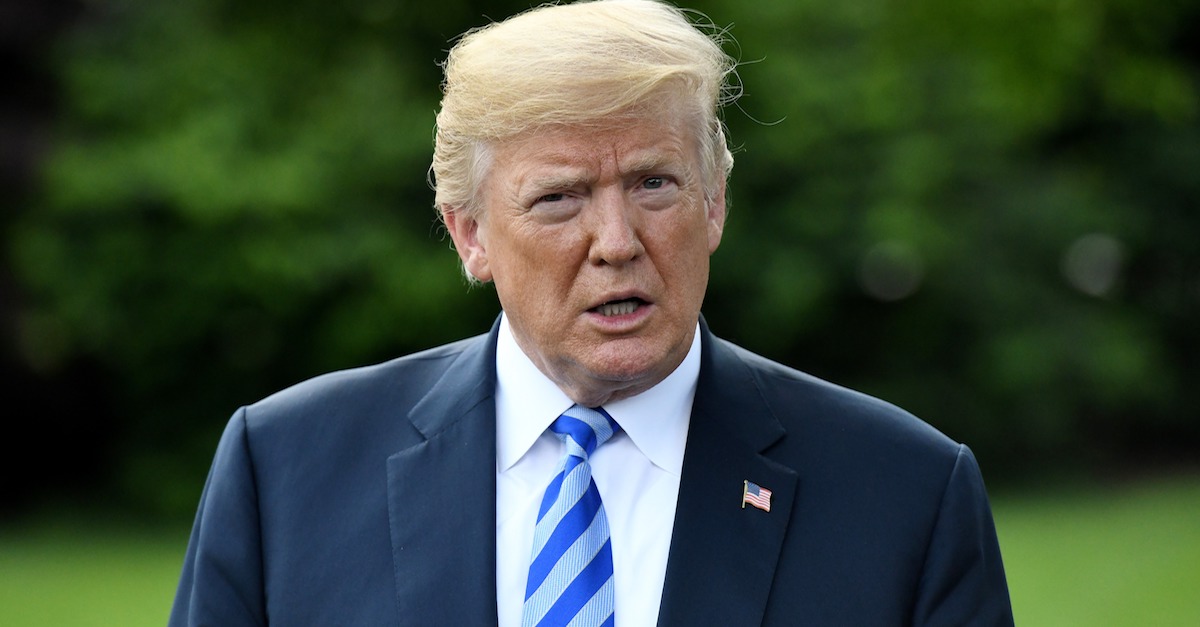
The anonymous op-ed published in the New York Times written by a senior staffer in the White House alleging that the President of the United States is, in essence, unfit to serve does not advance the best interests of the United States at this perilous time. If what the author says is true–and there is ample evidence to support this assertion–then the members of the “resistance” cabal within the White House have a duty that goes beyond merely publishing an anonymous op-ed, which will only serve to further incite an already volatile president.
As a former federal prosecutor and co-founder of a consulting firm that provides ethics and governance consulting, I understand the perils whistleblowers face: losing their job, facing retribution, being swept into government investigations. All of these are legitimate fears, particularly with a President who routinely humiliates and bullies members of his own administration. Nevertheless, publishing an explosive op-ed anonymously alleging that senior members of the administration are secretly thwarting the President at every step does not meet even the basic test of ethical conduct.
These “resisters” should consider doing what lawyers do in the rare circumstance that they discover their client is using them to perpetrate a fraud or crime: implement a “noisy withdrawal.” Under the New York Lawyer’s Code of Professional Responsibility, for example, a lawyer must zealously represent his client, but the disciplinary rules remind lawyers to “act within the bounds of the law” and not assist a client in conduct the lawyer knows to be illegal or fraudulent. If the lawyer learns that his continued employment will result in violation of a disciplinary rule, the lawyer must withdraw and can, in certain rare circumstances, publicly withdraw the opinion or advice given and can even disclose client secrets if necessary to stop ongoing crimes or a fraud upon the court.
As the American Bar Association Model Rules of Professional Conduct make clear, a lawyer has a duty to her client only insofar as that duty does not impinge upon the lawyer’s duty to “act as an officer of the legal system and a public citizen having special responsibility for the quality of justice.” This idea is not unique to lawyers. Other professions impose a duty to disclose equivalent to a noisy withdrawal. For instance, when an auditor finds fraud, she has a duty to withdraw from the engagement and communicate those matters on a timely basis to the appropriate level of management, or, in certain circumstances, to regulators or other enforcement authorities.
The “resisters” within the administration are professionals in the rare circumstance of serving a president they believe to be unfit. The Constitution contemplates the proverbial “noisy withdrawal” in the 25th Amendment, which provides for removal of a president in the event he or she becomes incapable of discharging the powers and duties of the office. The removal is triggered by the Vice President and a majority of “the principal officers of the executive departments” speaking up and alerting Congress that the President is unable to discharge the powers and duties of his office. The Constitution also provides for Congress to use impeachment to hold a president accountable, and remove him or her from office, if necessary. Each senior official took the oath of office, in which they solemnly swore to “support and defend the Constitution” and “bear true faith and allegiance to the same.” Just as lawyers have a special responsibility for the quality of justice by withdrawing from representing wrongdoers who seek to use their skills to commit injustices, the “resisters” within this administration are duty bound to support the Constitution by refusing to serve a President who is unfit and ensuring that Congress is made aware of actions taken by the President that demonstrate he is unfit to carry out the powers and duties of his office.
The resisters should resign en masse and offer to voluntarily testify to congressional committees under oath so that Congress can fairly evaluate the President’s capacity to serve. By remaining anonymous, they deprive the public of the opportunity to fairly evaluate the President’s fitness and to assess the credibility of the witnesses against him. By secretly undermining a President they continue to serve, and hurling anonymous accusations, these resisters are failing the most basic duty of service to the country.
Speak up. Speak out. Noisily withdraw.
Tiffany Moller is former federal prosecutor, adjunct at Columbia Law School, Co-Founder Pallas Global.
[Image via Olivier Douliery-Pool/Getty Images]
This is an opinion piece. The views expressed in this article are those of just the author.